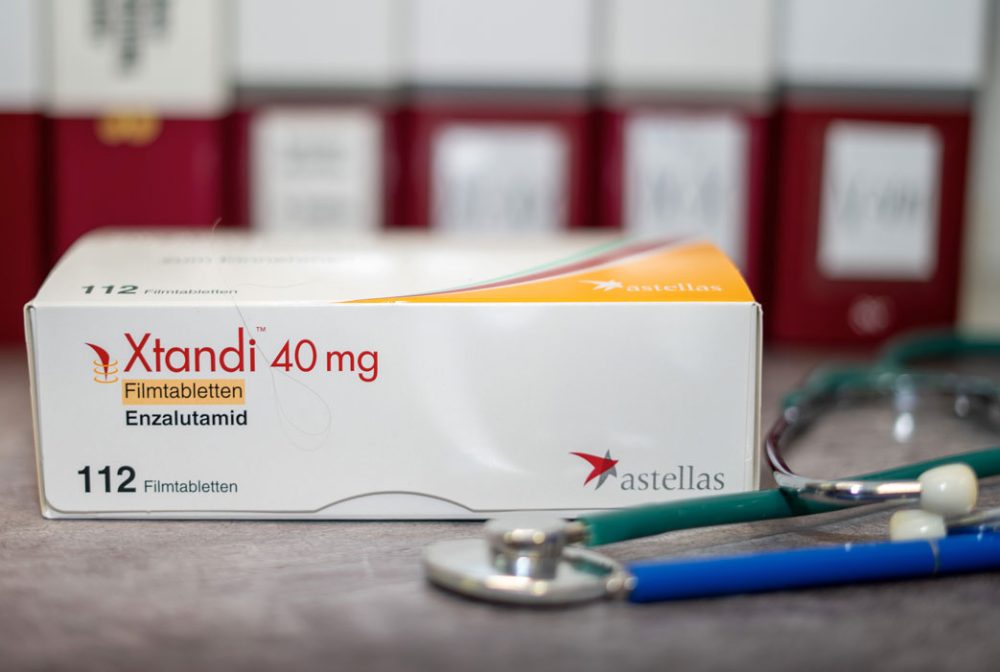Advertisment
Enzalutamide improves outcomes in in biochemically recurrent prostate cancer

In patients with prostate cancer with high-risk biochemical recurrence, enzalutamide plus standard-treatment leuprolide is superior to leuprolide monotherapy for metastasis-free survival.
And enzalutamide monotherapy is also superior to leuprolide monotherapy for metastasis-free survival.
The findings were reported on October 18, 2023 in the New England Journal of Medicine.
“If these treatments are approved by the Food and Drug Administration, our results will be practice changing,” said lead author Stephen Freedland, MD, associate director for Training and Education and the Warschaw, Robertson, Law Families Chair in Prostate Cancer at Cedars-Sinai Medical Center in Los Angeles, CA. “In the study, both of these new options improved metastasis-free survival while preserving quality of life.”
In this phase 3 trial, the investigators enrolled subjects with prostate cancer who had high-risk of biochemical recurrence with a prostate-specific antigen doubling time of 9 months or less.
They randomized 1068 subjects to receive enzalutamide (160 mg) daily plus leuprolide every 12 weeks, leuprolide monotherapy (n=358) every 12 weeks or enzalutamide monotherapy daily (n=355).
The patients were followed for a median of 60.7 months.
The primary end point was metastasis-free survival in the combination treatment group as compared with the leuprolide monotherapy group.
A key secondary end point was metastasis-free survival in the enzalutamide monotherapy group compared to the leuprolide monotherapy group.
The researchers reported that combination of leuprolide plus enzalutamide lowered the risk of metastasis or death by 58% compared to leuprolide monotherapy.
They also reported that enzalutamide monotherapy lowered the risk of metastasis or death by 37% over leuprolide monotherapy.
They noted that, “Both treatments maintained quality of life relative to the ADT [leuprolide] alone.”
“Optimizing therapy for patients with aggressive recurrence after their prostate cancer is initially treated has been an unmet need,” said Dan Theodorescu, MD, PhD, director of Cedars-Sinai Cancer and the PHASE ONE Distinguished Chair. “The results of this trial point the way to two options which the study showed were more effective than current standard of care, giving these patients and their providers the opportunity to choose a potentially improved course of therapy that best meets their needs.”





